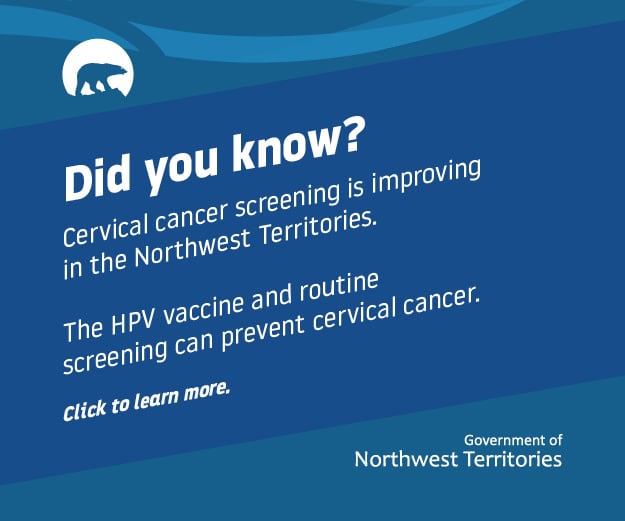Featured
Proposed bill would create most comprehensive workers compensation coverage for firefighters in Canada
'Imagine if you knew that just going to work every day was increasing your risk of cancer and heart disease, yet you do it everything with pride and with love,' says MLA Kieron Testart

Many NWT communities already have difficulty recruiting and retaining their firefighters and first responders, so it’s hoped a private members bill that increases medical insurance will change that.
 The First Responders Workers Compensation Amendment Act is designed to provide comprehensive coverage for firefighters and first responders, including all cancers and heart diseases, and presumptive coverage for PTSD.
The First Responders Workers Compensation Amendment Act is designed to provide comprehensive coverage for firefighters and first responders, including all cancers and heart diseases, and presumptive coverage for PTSD.
The bill aims to eliminate latency periods and reduce the 24-hour period for heart attack coverage.
“In Fort Resolution, we do have a fire department of volunteers, and it’s really hard to get really good people in our community to fight fires,” said Tu Nedhé-Wiilideh MLA Richard Edjericon at the Yellowknife Fire Hall on Monday.
“But within the last year, I would say we probably had about maybe three fires in our community, and I was there where one duplex was on fire. It was a long day for the firefighters, and they don’t have the same equipment what you guys got here, and this will go a long way to help them also.
“We also have firefighters that are working with (the GNWT), putting out the forest fires. I have one constituent that that is going through that right now, and they need help. So this bill will go a long way to help small communities, especially here in the North, as we have 33 communities.”
Kieron Testart, MLA for Range Lake, introduced the private members bill this week to create the most comprehensive workers compensation coverage for firefighters in Canada, by covering all forms of cancer and heart disease.

A Hay River house blazing in 2024. (Photo: Town of Hay River)
“Firefighting is tough work. So tough in fact, the International Agency for Research on Cancer has designated it carcinogenic in same category as tobacco and benzene,” said Testart. “Imagine if you knew that just going to work every day was increasing your risk of cancer and heart disease, yet you do it everything with pride and with love — and we thank you.”
The bill, if passed, would also get rid of latency periods for the diseases, making the sole requirement as employment for two years for the fire department. It would also scrap the 24-hour period after an emergency incidents, required to presumptively cover heart attacks.

Christian Bittrolff, president of the Yellowknife Firefighters Association, part of the International Association of Firefighters at an announcement Monday in the Yellowknife Fire Hall of a new private members bill aimed at protecting first responders and firefighters.. (James O’Connor/CKLB)
“The NWT and Nunavut are also the only jurisdictions in the country that do not provide presumptive coverage of PTSD to first responders,” said Testart, who has worked as a deputy Sheriff, and whose father is a long-time volunteer firefighter.
“This bill changes that too, making it easier for law enforcement, paramedics, nurses, sheriffs and correctional officers to get the care they deserve when times are tough, to respect the unique nature of workers compensation coverage that is shared between the NWT and Nunavut.”
“When I found out (firefighters and first responders) needed our Assembly’s help, it was clear to me we needed to work on a solution that will make a big difference in their lives and their families.
“We hope this bill will be supported by our colleagues in the Assembly as it goes to a vote later this week, it’s about time we gave back to Northerners touch every part of our lives and make the NWT the best place to work for first responders.”
Yellowknife Centre MLA Robert Hawkins, who will second the First Responders bill, has also been pushing for a no trespassing law to help residents and merchants deal with criminality.
Last Thursday, Hawkins questioned Justice Minister Jay Macdonald about enabling authorities to move unwanted people along from a business or other private property.
“Individuals can hold property owners hostage on their own property because they are exercising their rights to be there. Where is the fairness in this? Where is the rule of law? Where is the basic reason of understanding? Where is the fairness when you empower an encampment to be on your property?”
“When you have a grocery store that can’t stop people from entering who are known for stealing from it or causing disruption with staff and patrons, what are you left to do other than complain to your politicians?
“I’ve come to learn that moving at the speed of government has become a trend here, if not a fact, and moving at the speed means is slow, if not backwards, as possible. I know they want to do the right thing, but in my experience that’s after trying the wrong thing ten times.”
However, on Monday, Hawkins was pleasantly surprised when Minister Macdonald said the department — which had been working on such legislation — would now speed up that process.
This as the first homeless encampment of the season has sprung up in downtown Yellowknife parking lot, to the complaints from nearby residents.
Said Macdonald: “I am happy to be able to stand up here today and say that I’ve had a conversation with the Department of Justice this morning, and we have directed them to advance the Trespass Act on a more aggressive timeline than I had proposed last week, and that work is underway.”
The target now is to have the bill brought to the floor in the fall sitting of the Assembly.

Finance Minister Caroline Wawzonek speaks in the NWT Assembly on May 26, 2025. (Assembly livestream)
And Caroline Wawzonek, Minister responsible for the NWT Power Corporation, in response to a question, provided a decent primer into the current situation of the territory’s power grid.
“The energy systems of the Northwest Territories are in dire need of significant nation-scale investment — we need the federal government to be paying attention to the situation we find ourselves in,” said Wawzonek, explaining the GNWT already significantly subsidizes rates.
“We’re not on the North American energy grid. We’re on our own. We have almost 20 some different individual micro grids. So we need the federal government to look at us.
“(We need Ottawa) to look at projects like Taltson, that will start to link our systems. To look at some of the micro-hydro projects that are being examined by Indigenous governments on their lands, and frankly, to consider whether or not there’s some other pilot projects that are happening elsewhere in Canada that need to happen in the North so they’re regulated for the Northern climate northern context, and can be brought online to actually fundamentally change the (situation) that we’re in.”




